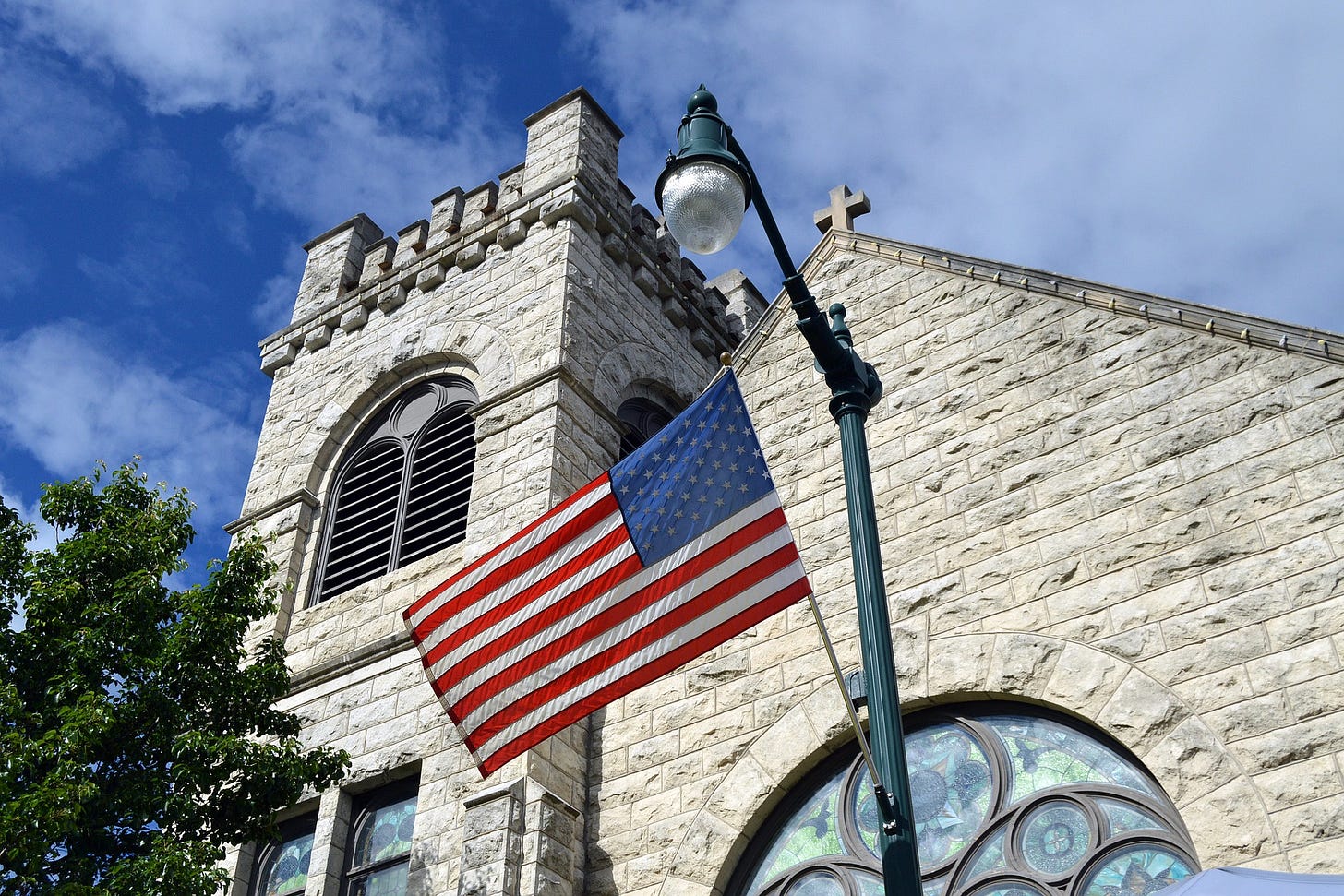Misplaced National Pride
Prioritizing Kingdom over Country
In Mark 13:1-8, Jesus, in response to a comment from one of his disciples about the beauty of the Temple, predicts its destruction and delivers an eschatological discourse describing the signs (and nonsigns) leading to the destruction of Jerusalem. 1
The text tells us in vs 1: As he came out of the temple, one of his disciples said to him, "Look, Teacher, what large stones and what large buildings!"
Jesus then responds with, "Do you see these great buildings? Not one stone will be left here upon another; all will be thrown down."
This disciple wasn’t a new arrival to the Jerusalem scene. This disciple had been on the Temple mount many times. He had spent a good bit of time there over the three year period that Jesus was ministering in Israel. So he wasn’t starstruck. This was an expression of pride in what was the crown jewel of Israel.
And that makes Jesus’ response so interesting. Jesus dismissed the future of this grand construction project. “Not one stone will be left here,” he said. In doing this, Jesus seeks to redirect the disciples from their misplaced national pride. The Temple will become meaningless. And in 70 A.D., it was destroyed, and the Temple functions were no longer carried out. And they have not been performed since that time.
In every nation, there is at least one source of national pride. In India, it may be the Taj Mahal. In England, it could be several, including Buckingham Palace, Big Ben, or the Tower of London. In the U.S., we would have several: the Statue of Liberty, the White House, the Grand Canyon, the Flag, or the Constitution. In 2001, Osama Bin Laden believed it to be the military and capitalism, including the financial sector and so organized an attack around the Twin Towers in New York City and the Pentagon in Washington, D.C.
National pride is important to the health of the country. We should pledge fidelity to the country we align ourselves with whether we agree with everything the country does or not. And ideally, the country doesn’t take actions that would make us ashamed of being citizens of that country.
Jesus had spoken often of the Kingdom of God. He wanted his disciples to understand that there was something greater than the nation-state they lived in. In the quasi-theocracy that was Israel, power, corruption, and injustices had led them away from the one to whom Jesus pointed, the one who led them out of slavery, and brought them back in relationship with Him. Multiple times.
Their pride was in the buildings, laws, and practices that defined their quasi-theocracy, not in the God who was king over all. They had forgotten that to obey God is better than the sacrifices and law-keeping the Israelites had developed.
Many in the U.S. hold tightly to the symbols of national pride. And rightly so. But those symbols of national pride are, for many, reminders of our broken past, filled with injustices, racism, colonialism, and destruction. They reveal the inhumanity of our systems and laws, of which there have been, and still are, many.
As Christians, we are bound to a kingdom greater than a nation. We are bound to something greater than the symbols of our nation. We are bound to a king who had a “son” who died on a cross to break the power of brokenness, sin, injustice and inhumanity. We are bound to a kingdom where justice and mercy and grace should permeate and penetrate our thoughts and actions. We are bound to a kingdom that honors the “aliens and strangers” in our midst. We are bound to a kingdom that fights for the poor, the widow, and the orphan. And we are bound to a kingdom whose defining characteristic is loving God with everything we have and loving our neighbor, yes even our enemy, in the same way.
Even over our country.
Like the message of Jesus to his disciples coming out of the Temple that day, our ultimate allegiance should only be to God and his Kingdom. A place of mercy and justice, grace and peace, and love for the other that seeks their best, regardless of where they are from.
That doesn’t mean we can’t honor our country and take pride in the good that it does. It just means that we have to have our priorities in the right order. And yes, that may also mean we keep the Flag, and our allegiance to it, out of our worship services.
To do otherwise is to misplace our national pride.
Strauss, Mark L.. Mark (Zondervan Exegetical Commentary on the New Testament) (p. 810). Zondervan Academic. Kindle Edition.


